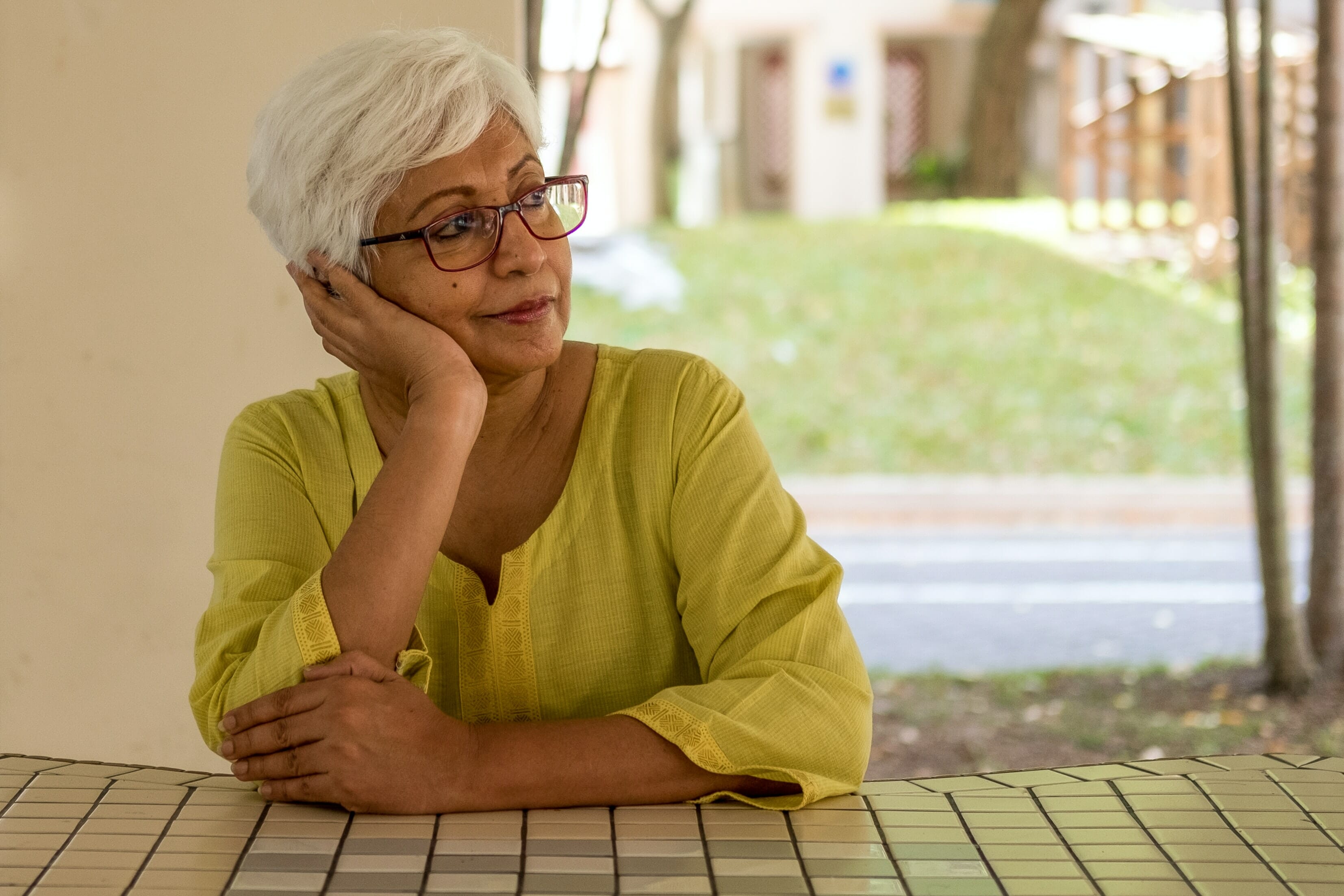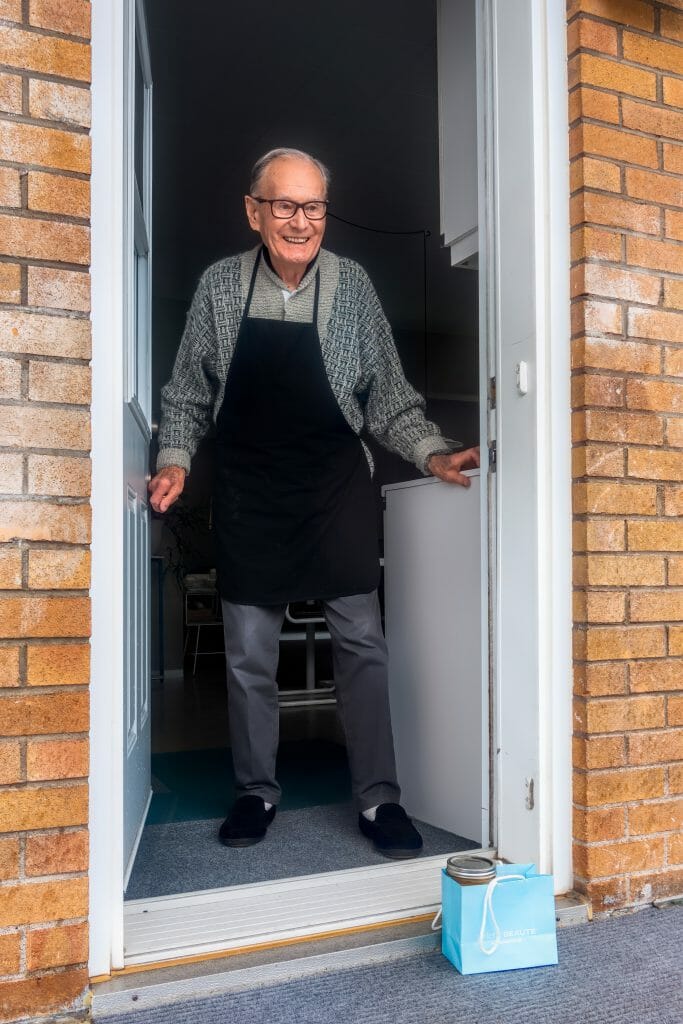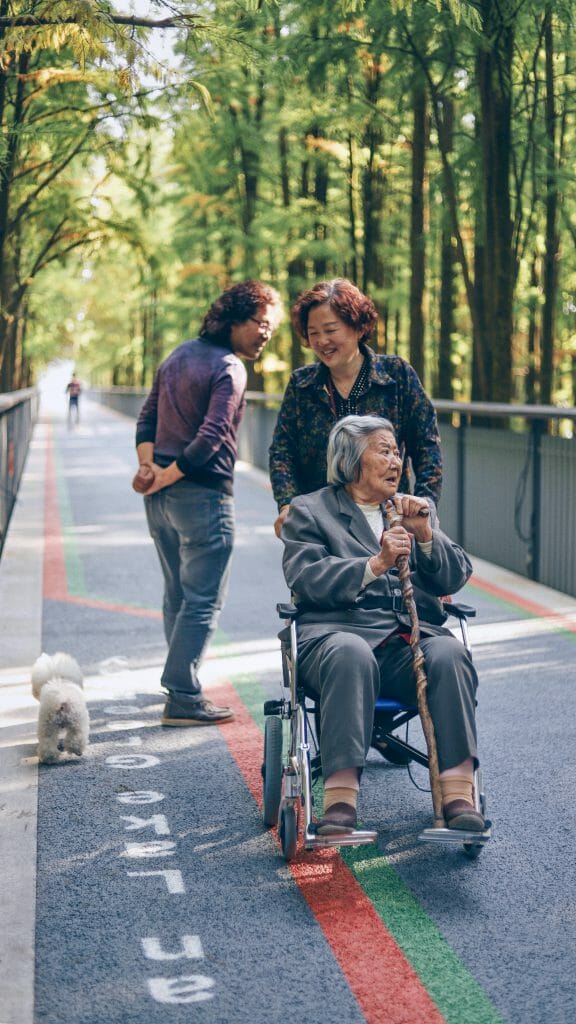Growing older where and with whom

I moved in because I no longer trusted my body or my health. I wanted the security of having a health centre on site. As much as I wanted it, I wish I didn’t need it. My friends –living outside – started treating me differently too. I’m not even sure if they were aware of it. But can we really blame them? after all, there is a part of me that does feel different. But do they no longer see me as just a regular person?
– Sara (story submitted by Bianca Stern)
As we age, some of us may find ourselves struggling to maintain our home and ourselves. Daily activities like laundry and housecleaning may become increasingly difficult. Managing stairs, concerns about home safety hazards (e.g., stoves), snow clearing, and garden maintenance may be tasks we would rather not have to worry about. Perhaps our neighbourhood has changed so much that we feel isolated and no longer connected to it. These changes in addition to the possibility of the onset or progression of a medical condition (with ourselves or a family member), may get us thinking about alternative living arrangements. The options may seem overwhelming- retirement residences, assisted living, nursing homes, 55 Plus living, home care, community care, long-term care homes, intergenerational living, or co-housing. What are these and what is best for me? Should I move in with my family? Should my grand-daughter move in with me? Should I move to another city to be close to my children? Can I hire a home helper? Should I renovate my current home to make it more accessible? What can I afford? What home supports currently exist? There is a lot of information out there and many decisions to make.
We are all different and so the living arrangement that is right for us may not be right for someone else. What is important is that our living arrangements are compatible with our activity interests, health and financial needs. This might mean modifying a current home to make it safer and more comfortable, or moving into a more supportive or social living environment. For many affordable, safe and accessible housing limits the options available.
Finding the right place to live can be challenging and stressful. The earlier we assess our needs and how these needs may change over time, the more choice and control we will have. Being aware of the different housing and home supports available gives us greater control over decisions to be made. Knowing what options are available is a first step to ensure that we can continue to grow into old age in a secure, comfortable and accessible living space with the necessary supports in place.
What senior housing options are available to me?
Aging in my own home and community
 Research has found that many seniors simply want to “age in place”, that is, to grow old in their own homes and communities for as long as possible. All of us have our own reasons for wanting to age in place. Staying put has the advantage of keeping us in a familiar place where we know our neighbours and our community. Our home offers privacy and is the place where many good memories were made.
Research has found that many seniors simply want to “age in place”, that is, to grow old in their own homes and communities for as long as possible. All of us have our own reasons for wanting to age in place. Staying put has the advantage of keeping us in a familiar place where we know our neighbours and our community. Our home offers privacy and is the place where many good memories were made.
Despite the fact that over 85% of aging seniors’ prefer to “age in place”, research has found that many homes and communities do not have the structural features and access to support services that make this a safe and viable option. As our needs change, we may need to draw on available home care services or make repairs and modifications to our home. Occupational therapists are part of the home care team that supports seniors to remain in their homes for as long as possible.
Our changing abilities might prompt us to think about alternative living arrangements. However decisions about where to live and with whom often depend on more than just our changing abilities. For example, are there supportive friends and family nearby? Are there adequate and accessible transportation options? Are we close to needed health care supports? Do we have the resources to modify our home if needed? What kind of in-home supports might we need to securely manage the everyday activities that are important to us? If I have a chronic illness, disability or other illness, what future supports might be necessary? For some, venturing outside might become more and more difficult placing them at risk of social isolation and inactivity. Yes, seniors mostly want to “age-in-place” but we may also want to participate in the life of our communities.
The list of living arrangements are numerous and the decision making process can feel overwhelming.
Below is a list of housing options that can be discussed with your health care providers, family or friends.
 Independent living options will allow us to maintain our own living quarters to preserve our privacy and independence, and only choose which support services we wish to receive.
Independent living options will allow us to maintain our own living quarters to preserve our privacy and independence, and only choose which support services we wish to receive.
I don’t know exactly…I just feel that I am different than I used to be. I’ve had this feeling since I moved in here. In some ways I feel like this place will allow me to be more active than I have been in a long time –there’s so much to do…But it’s strange…the moment I step outside of this building I feel more like the ‘old’ me…the person I was before I moved here. I’ve also noticed that my friends living in the outside community see me differently too. Somehow they seem to think I’m more helpless now. They offer to help me with all sorts of tasks…which I appreciate…but they should know that I can still do these things for myself. I can’t put my finger on it. Maybe it’s because I just don’t feel like I have as much control over my life. My body is changing and I find that my memory…my memory just isn’t as good as it used to be. But this didn’t start when I moved in here…I’ve been noticing these changes for some time.
– Ben, (Story submitted by Bianca Stern)
- When we are in need of personal care services that are feasible at home or in an independent living community, such as preparing meals, getting to the bathroom or travelling to appointments, and if we do not need around the clock medical care, assisted living might be another good option.
- If we have a serious, ongoing health condition or disability that requires a high level of medical care that cannot be met in our home, on top of needing assistance with everyday activities, such as getting in and out of bed, bathing and dressing, long-term care might be the most suitable option.
- Supporting each other to thrive in old age : Co-living is a new way of looking at independent living in a community. Co-living or co-housing involves joining with long-time friends or roommates in a communal house where each person has private space, but shares communal spaces.
- Living with a child or relative : Living in multigenerational households has perks. It allows our younger family members to provide care in our time of need. We may feel more comfortable with care provided by a loved one, particularly with intimate tasks, than from a hired caregiver. We can also benefit from the company of our loved ones, which can prevent social isolation that is shown to be detrimental to our health and well-being.
How can an occupational therapist help with deciding where to live and with whom

After a serious fall which made managing at home and getting around difficult, I moved into a retirement home. Several months later, my two daughters noticed I was depressed and had withdrawn from social activities. Everything seemed harder to do and I had lost the energy I once had.
At the insistence of my daughters, I began receiving home-based occupational therapy. My world has since reopened. One of the innovations my occupational therapist devised was a specialized electric wheelchair which allows me to move about the home, attend activities, and access my neighbourhood. With the energy issues, my occupational therapist showed me how I could balance my daily activities throughout the week, so I had enough energy for the things that were most meaningful to me.
– Duncan, a dentist and an associate Professor at the University of Toronto’s Faculty of Dentistry retired
from active practice at age 73 (story submitted by Barbara Cawley)
Occupational therapists can help seniors work through the problem-solving process of planning where to live and with whom. Whether that involves a move or changes to existing home supports to help us stay where we currently live.
Should we (or someone we love) wish to stay right where we are, but are experiencing a decline in abilities and have concerns about remaining secure, content and engaged, an occupational therapist can walk us through the many options and considerations based on our own individual circumstances. For example, occupational therapists,
- collaborate with design/renovation professionals to ensure our needs and preferences are met in the process. Home modifications or renovations can be permanent structural changes, or more temporary alterations to the environment, such as ramps, stair glides, or level-access showers, to enable our safety.
- may recommend adaptations and assistive devices and tools that can assist us to remain safe and active in our own home and community
- assess mobility needs within the home and community to determine if a device, such as a cane, walker, wheelchair or ramp is needed.
- connect us to the support services that match our care needs. This might be a recommendation for homecare services or a conversation about considering transitioning to a more supportive living environment
Occupational therapists can help seniors work through the problem-solving process of planning where to live and with whom, whether that involves a move or changes to an existing home supports to help us stay where we currently live.
Should we (or someone we love) wish to stay right where we are, but are experiencing a decline in abilities and have concerns about remaining secure, content and engaged, an occupational therapist can walk us through the many options and considerations based on our own individual circumstances.


